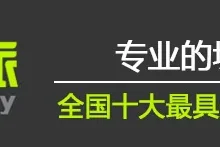第13届国际城市化论坛(IFoU)年会将于2020年10月9-12日在南京大学举行。本次会议由国际城市化论坛(IFoU)主办,由南京大学建筑与城市规划学院承办。
*注意:由于中国的国际会议规则,请确保所有可能出席会议的人都在您提交的摘要中注明的作者之列。摘要/论文一旦被接受,就不可能添加或更改作者。
从早期的桌面计算机到当代层出不穷的智能移动设备,人们已经预料到,在未来的十至二十年内移动互联网的迅猛发展将推动巨大的变革与创新。截止2018年,全球移动互联网用户已占全球总人口的67%。移动互联网正在迅速扩展流空间的规模,同时流空间与地方空间的互动也将日益频繁。流空间所具有的永恒时间、去中心化以及碎片化特性,必将导致大量资金流,信息流和物流等的加速流动,从而催生新的商业模式和经济范式。这不仅是对传统经济体系的整合和补充,更是促发草根经济革命,重塑全球经济体系的重要力量。移动互联网时代的经济和社会发展必然影响城市和乡村的空间形态,消弭城乡二元结构,加强区域时空联系,但也不可避免地面临新的挑战。
基于此,国际城市化论坛(IFoU)与南京大学联合举办第十三届国际城市化论坛年会,聚焦研讨移动互联网对城市化、城市形态、城乡关系、乡村发展以及未来建筑的挑战,探索新型城镇化机制,寻找城乡可持续发展最佳路径。
关注信息通信、互联网技术以及电子商务对于全球城镇化的影响;
通过全球同行共享研究成果,发现全球城镇化的新趋势与新规律;
广泛吸引多学科、跨学科的研究者、专业人士参与讨论。
关注信息通信、互联网技术以及电子商务对于乡村的影响;
分享全球乡村研究成果,交流移动互联网时代的乡村振兴路径;
关注新乡村现象,以新乡土建筑、生态建筑的发展。
关注信息通信、互联网技术以及高速铁路网对于巨型城市区域的影响;
通过全球同行共享研究成果,发现巨型城市区域的新趋势与新规律;
在移动互联时代探讨巨型城市区域的规划与治理问题。
关注移动互联网、社交媒体、自媒体等对于公众参与的影响;
通过全球同行共享研究成果,交流自媒体、去中心化时代的公众参与方法与技术;
探讨移动互联时代的城市与区域治理的方式、方法。
结合移动互联时代的发展探索未来城市的发展趋势;
展示全球同行关于未来城市、未来社区的研究、规划与设计构想;
探讨未来城市、低碳社区、绿色建筑的设计理论与方法。
*组委会详细名单请见会议官网: www.ifou.org
*请勿将摘要及论文投至联系邮箱,仅接受会议网站投稿。
CONVENOR:International Forum of Urbanism
ORGANIZER:School of Architecture and Urban Planning,Nanjing University
VENUE:Gulou Campus, Nanjing University
* Please submit the abstract and full paper on the conference website.
Deadline for Abstracts Submission: 10 FEBRUARY 2020
Notification of Acceptance of Abstracts: 30 MARCH 2020
Open for Registration: 15 APRIL 2020
Deadline for Early-bird Registration: 15 MAY 2020
Deadline for Full Paper Submission: 10 AUGUST 2020
Deadline for Conference Registration: 15 AUGUST 2020
Conference Program: 9-12 OCTOBER 2020
*NOTICE: Due to international conference regulations of China, please make sure that all the possible presenters/attendees to the conference are among the authors indicated in the abstract you submit. It is not possible to add or change authors to your abstract/paper once it is accepted.
ADDRESS FOR SUBMISSION:www.urbanform.cn
REQUIREMENT:We only accept abstracts written in ENGLISH, not exceeding 300 words.
From the early computer on the table to the contemporary intelligent mobile devices on hand, it has been anticipated the significant change of the internet would be driven by the remarkable proliferation of mobile internet over the next ten-to-twenty years, which account for 67% mobile internet users of global population in 2019. As the rapid increasing number of internet user (Global Internet user penetration has exceeded 57% in 2019, and the internet user approximately 60% in China respectively), it will increasingly serve as the interface between people moving around on the virtual space and the physical world surrounding them. The peculiarity of the internet including timeless time and death of distance leads to a larger number of flows translated on the virtual space rapidly, such as flows of capital, flows of information and flows of organisational interaction, which spawning the new commercial models and economic paradigm. It is not only for integration and complementation of previous economic system, but also for the revolution to the grass-rooting deeply to reshape the global economy. The effect to economy and society under the mobile internet era will change the spatial form of urbanisation, reduce the dualistic structure system of urban and rural, reinforce the intensifies temporal and spatial considerations, but also be inevitable to face some challenges.
Therefore, The International Forum of Urbanism (IFoU), in partnership with the University Nanjing, China dedicate its 13th annual conference to analyse the challenges to the urbanisation, urban forms, urban-rural relations and urbanism under the mobile internet era. The meeting aims to explore the development paradigm in city and countryside, and find a sustainable solution of urbanisation in the rapid development of mobile internet Era.
The Nanjing conference will convene participants of scholars, advocates and policy makers to discuss about the most relevant research challenges related to urbanization, urban forms, urban-rural relations and urbanism under the mobile internet era. The conference proposes the growing concern about the transformation including economic disparity, spatial fragments, social segments and governance changes from the network tension of the virtual and physical space. We urge to a sustainable paradigm of future urban and rural form under a new partnership.
Researchers, practitioners, multilateral agencies, civil society and city-to-rural learning networks will collectively shape debates around how to critically understand and restructure the urban-rural integrated system, contributing to more economically and socially comprehensive relationship between urban and rural region.
The conference will tackle issues related to urban and rural theory, frameworks, principles and paradigm under the mobile internet era, but also navigate the practices through the challenges, learning and future challenges. The call for panels and papers will focus on five main aspects of urban-rural urbanism research and implementation under the mobile internet era:
Topic 1 Urbanization in the Mobile Internet Era
Internet has been used as a powerful tool that could decentralize work and living patterns, which results to the changed of contemporary urbanism setting. In particularly, the rapid development of ICT (Information Communication Technology) changed the ways and velocity to translate information, such as Mobile Internet-5G. It not only has developed in urban areas, but also has sunk into rural sites. Where people could participate in political and economic activities through using their own mobile phones without being related to their own political power, educational level and personal economy.
With the development of ICT, a growing number of people are using it to carry out the e-commerce activities around the world and shape the global economic model both in the city and countryside and improve the local economy as well as their careers. An urgent challenge is the issues of how to have a long term of the sustainable development under the Mobile Internet Era.
Therefore, analysing the new trends and rules for the new urbanization in the Mobile Internet Era would produce a better response to the challenge and establish a new paradigm to sustainable urban and countryside development. Furthermore, urban researches never be an isolated subject, which crosses multiple disciplinary boundaries including planning, social, political, economy and etc. This new phenomenon of urbanisation would come into notice of them and establish multi-/inter-disciplinary dialogues among researchers and professionals.
Topic 2 New Economy and Rural Revitalization
The development of Hi-Tech and the Internet generates new economy in the last decade of the 20th century, which has changed the fundamental laws of economics and how we work, recreate and play. The emergence and the rise of the Internet as a business medium, such as e-commerce, is demonstrated to benefit the urban-and-rural areas. However, the challenges in the rural areas differ from urban analogues, including limited access to infrastructure, services, policy decisions and greater exposure to environmental shocks as well as stresses facing the development of economy like the overused natural resources.
In China, South Korea and other countries, the innovation of live broadcast in rural economic achieves preliminary success and stimulates the endogenous power to improve the habitat environment. We urge to share with more paradigms in rural areas utilizing the Internet technology, especially the mobile Internet, and trajectories of policies.
In addition to the application of the Internet technology in local economy, the smart rural strategy requires a sustainable habitat environment with historical heritage and ecological living pattern. Therefore, this topic calls for the new models of architecture based on local history, resources and nature.
Topic 3 Mega-city Region with the Mobile Internet
Megacities act as magnets for trade, culture, knowledge and industry on an unprecedented scale. With the development of internet technology in mega-city region, the mobility of element flows strengthens, the connection between virtual world and physical space establish, the various spatial forms are reshaped by stickiness to geographical location or the virtual network in varying degrees. The flow of features could eliminate the existence of local space due to the fuzzy administrative boundary by rapid increasing of mobile users.
In the internet era, the way population and resources participated in the megacities has changed, with faster and more efficient flows of information, contributing to minimize the loss and maximize decision participation. It offers the possibility of multi-assessment system related to multi-dimensions of economy, environment and society and sustainable strategies making by the internet technology, like govern app or website open to citizens, rather than sacrificing environment for growth. Therefore, better governance, services and holistic solutions in an internet way are urgent demand to apply to megacities society development.
In addition, the internet technology, especially the mobile internet, will help deliver transparency and efficiency, contributing to enhance the interaction between the public and the government cross boundaries.
Topic 4 Public Participation & Governance Transformation
Internet plays a pivotal role in booting economy by executing e-commercial activities both in the cities and rural areas, which results to local and global citizens, businesses, and governments have a better, more coherent and interacting experience. The peculiarity of the internet including timeless time and death of distance provide governments a great opportunity to better understand what citizens need, assemble services more quickly and at lower cost, and continuously improve services based on data and evidence. However, there is no fixed physical space to establish a regional connection on the mobile node in the network society, and it eliminates the real political boundary, which provide challenge to city-region governance.
On the one hand, people could use the mass self-communication (such as Facebook, Twitter, WeChat, TikTok) to sale products, which have local cultural characteristics rather than concentrated on the agglomeration areas like city centre or others. One the other hand, public people could get others’ attention to reflect the social problems in the form of short videos, who could support or oppose the view far away the place by using mobile phone.
Topic 5 Future City and Design
The reasonable and efficient consumption of materials and resources are a key factor to build and design the future city. Building on and integrating with big data as well as virtual reality, the cities of the future could cope with the problems for the growing populations and scarcer resource. At present, big data is being used to understand when, how, and why crowds form, and to predict their movements and actions. It is essential to understand how people move in cities, how energy is used, how various aspects of infrastructure interact, and much more. The virtual reality people real experience on the virtual space which could change the style of building for fitting the new technology. These opportunities and challenge could stimulate people’s will to promote new approaches of future city and design with low-carbon community and green building in the mobile internet era with tools like big data and virtual reality.
In addition to that, a synchronic society leads us to consider the approaches of future city and design in a totally different way, such as different level of infrastructural facility, economy, policy, institutions and others. A global perspective does benefit us to assume better and suitable planning and design schemes for the cities.
* See website (www.ifou.org) for complete list of committee members.
○ LOCAL ORGANIZING COMMITTEE
Contacts:HUANG Huaqing, SHEN Mingrui
* Please do not submit your abstracts or papers to the above email address. We only accept submission through the website.
原文始发于微信公众号(国际城市规划):会议预告 | 国际城市化论坛(IFoU)2020年会一号通知

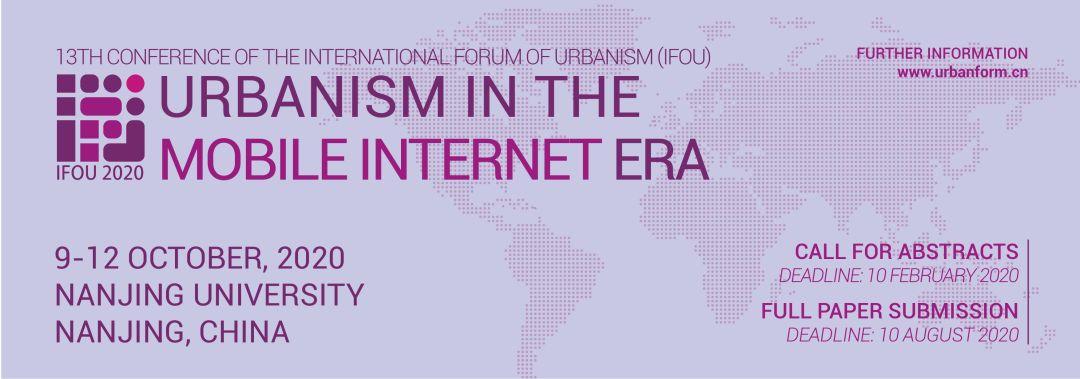

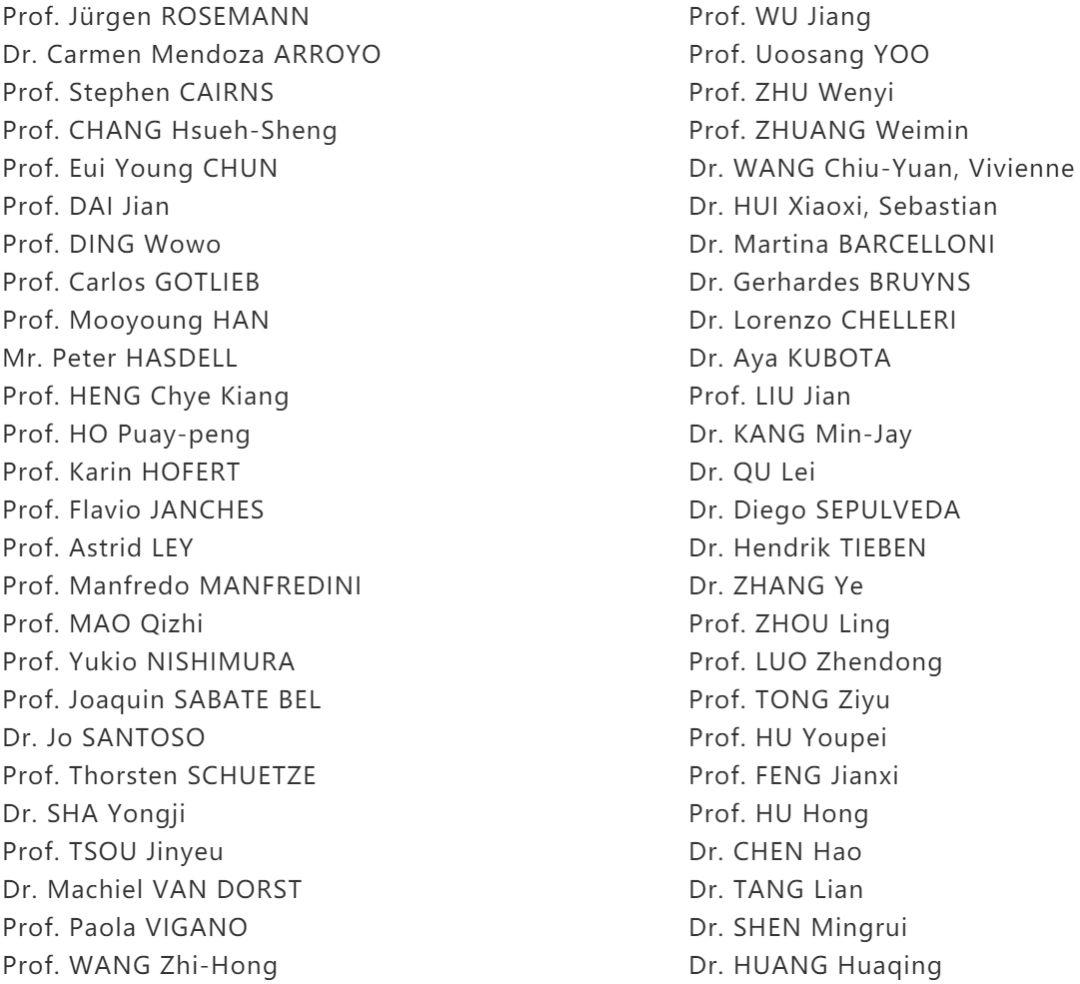




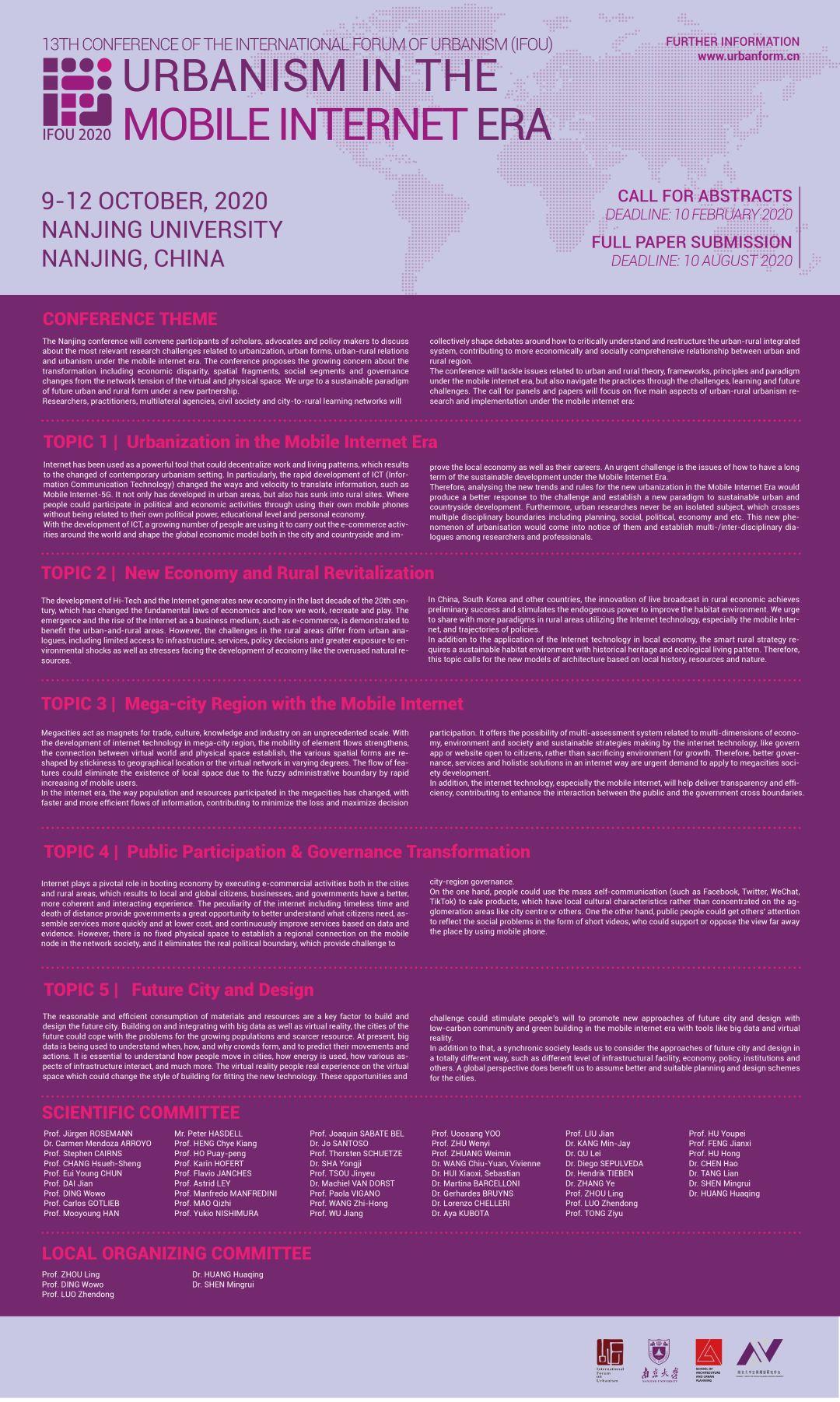
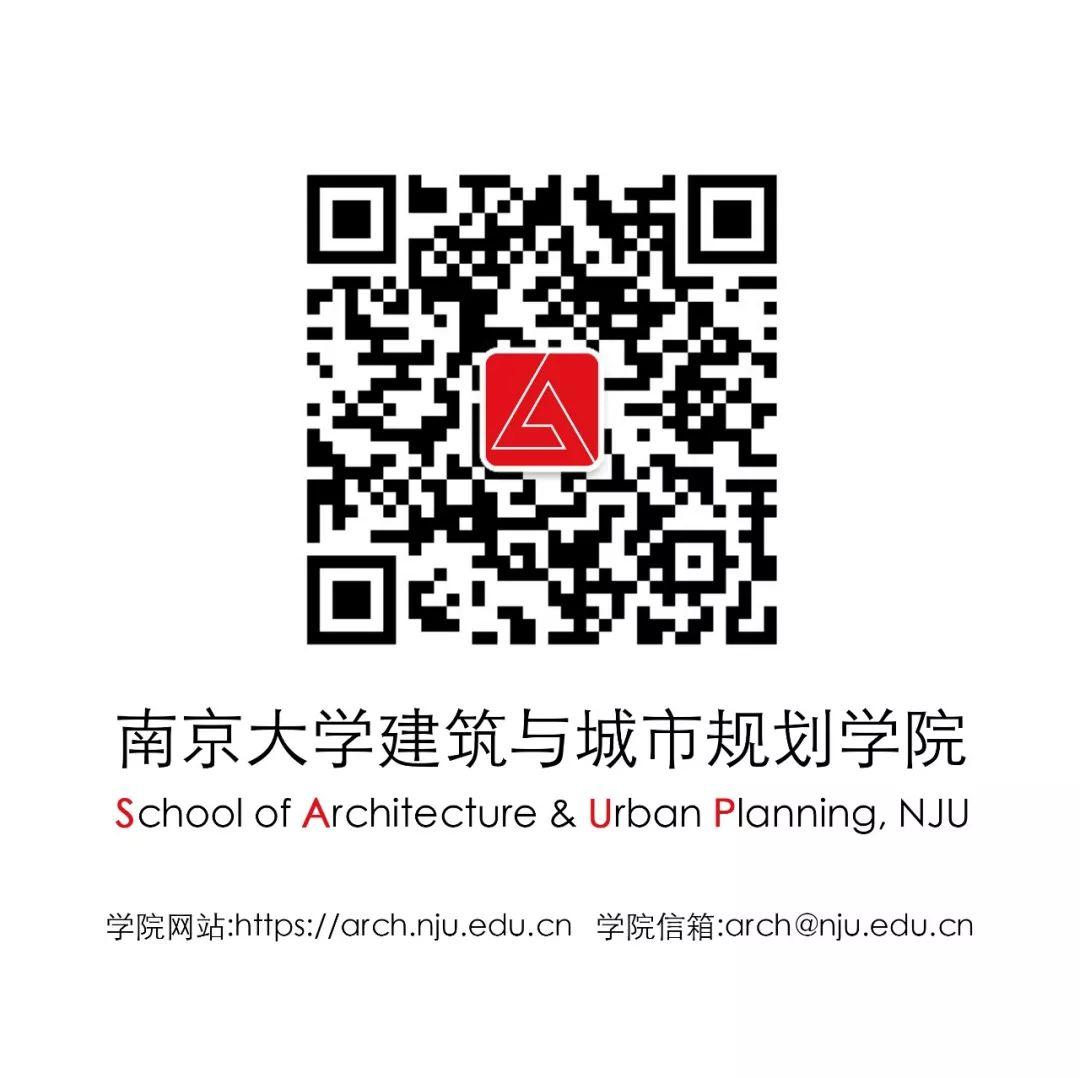
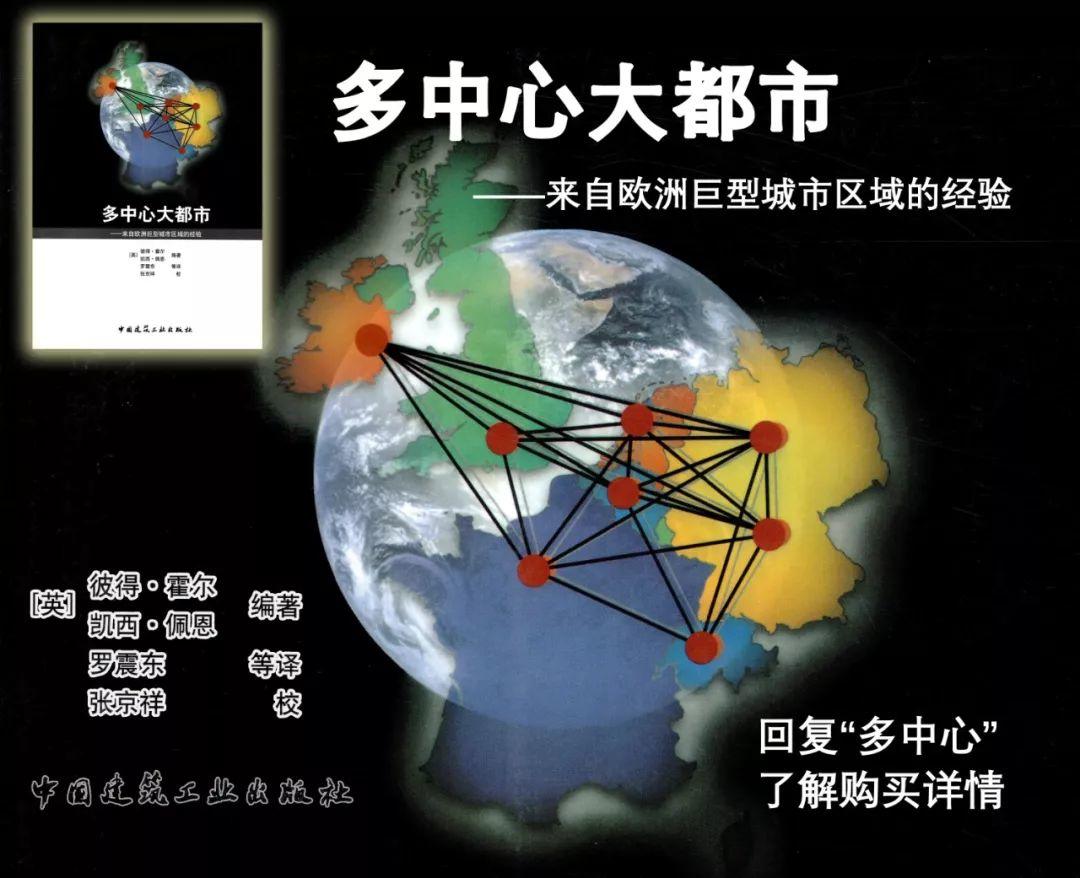
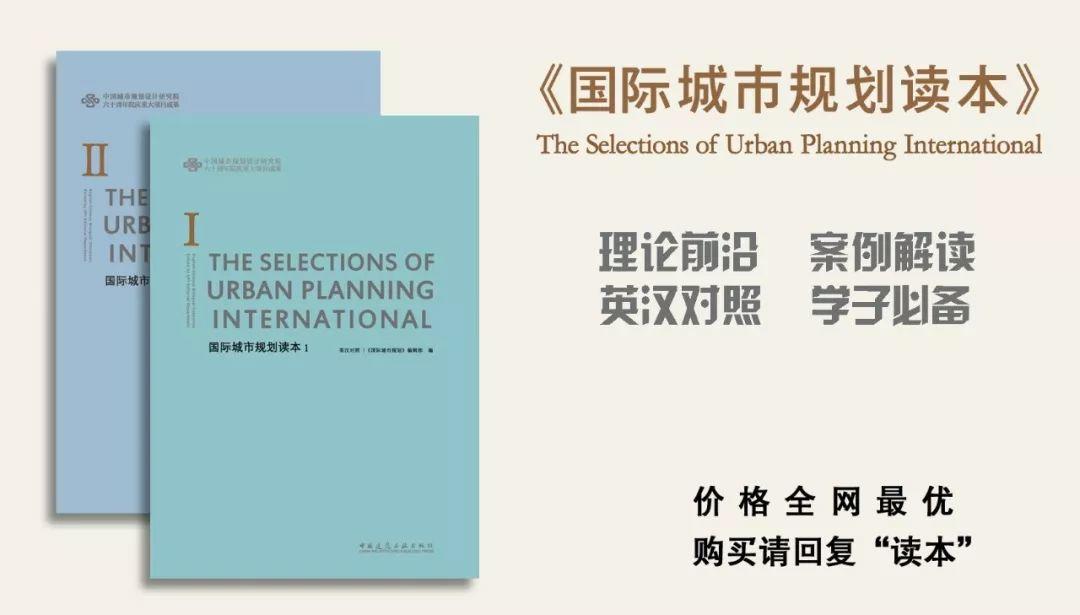
 规划问道
规划问道




